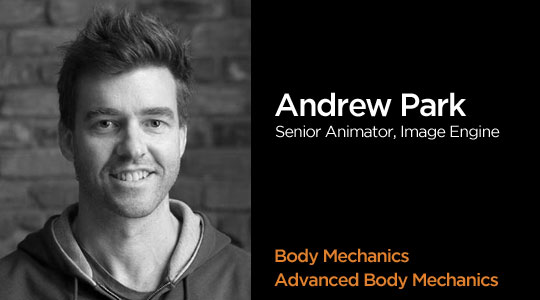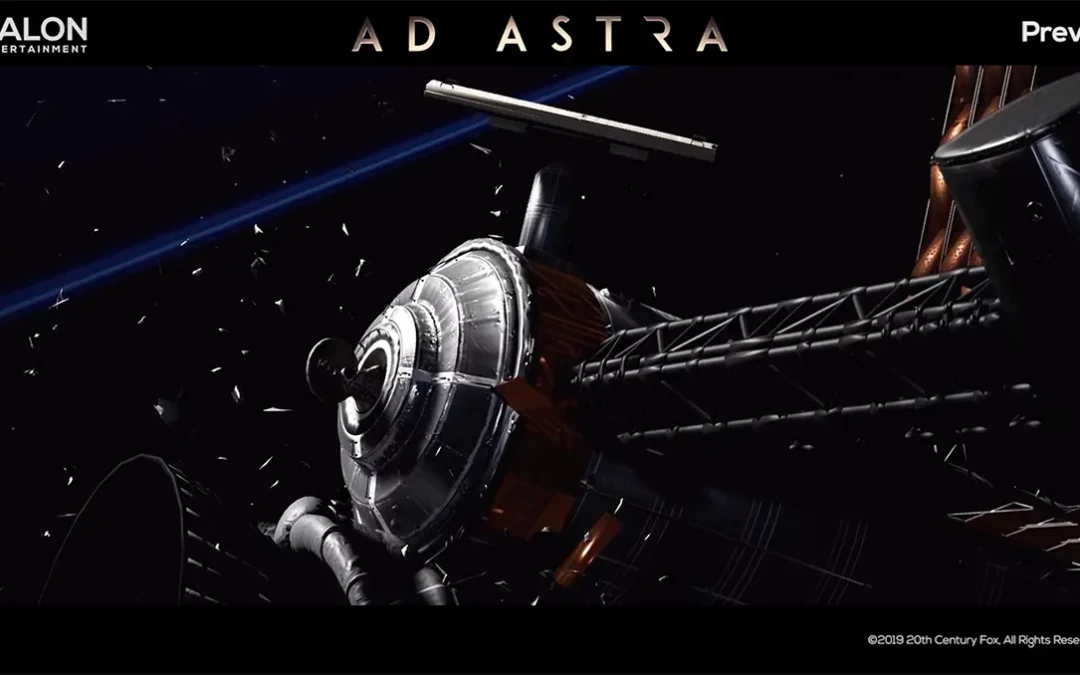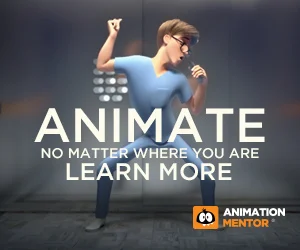
So, you’ve secured a demo reel review at a convention, job fair, etc., but it’s not just about the work! You want to make a good impression too. There are definitely do’s and don’ts to abide by when getting your demo reel reviewed—learn what they are from Image Engine Senior Animator Andrew Park.
Think of a reel review as a job interview.
A reel review, in some ways, is similar to a job interview, so it’s good to think about it in that context. Whether it’s at a convention, job fair, school mentor, or personal mentor, be respectful of the time people are giving you to look at your work. Remember they are there to help and give you advice about the animation in your reel, but they will also be assessing what your personality is like and how well you take feedback. The manner in which you receive feedback is paramount to leaving a good impression, but it’s not just about pretending to take it well, you really have to get into the spirit of being an apprentice.
Be sure to also read Rich Fournier’s post on The Best (and Worst) Ways to Take Feedback On Your Animation!
The people who are seeing your reel have looked at hundreds and thousands of reels. They will be able to assess very quickly what level you’re at. The feedback they give you will either be very direct or they’ll show you sign posts which can guide you toward a better quality reel. When they tell you what they think, the next thing they’ll be watching for is how you take it. If something isn’t clear, be sure to ask thoughtful questions that will clarify things for you. Don’t walk away from that valuable time still wondering what they meant.
Another reason to present yourself like you’re at a job interview is that people might remember you, so leave a good impression. Supervisors, leads, and mentors can get you hired. It’s possible your work isn’t up to the standard they need to hit the ground running, but maybe your work shows promise, and the next time they are hiring some juniors or low-mids, you could fit in.
If something isn’t clear, be sure to ask thoughtful questions that will clarify things for you. Don’t walk away from that valuable time still wondering what they meant.
So never stop improving your work. If you have the chance to show up a year after you showed someone your work, and you presented a couple more personal shots that showed a lot of improvement, that could go a long way and show your dedication and hunger to get in. There is a lot to be said for perseverance, we need copious amounts of it to get through projects, so showing that you have that quality will go a long way toward getting you hired.
Reviewee Etiquette
Be straight-forward, honest, and a good listener. If you get feedback you don’t agree with, again, don’t be defensive. Ask thoughtful questions! For example, “What would you do to make this shot better?”, or “Are there any shots you would omit?” Remember, you’re there to soak in the information you’re being given.
It never hurts to try and find out a bit about the person who will be doing the reel review (if that’s possible), or the company they work for, and ask them informed questions. Make sure the device you’re showing your reel on is fully charged and either has really good speakers, or be prepared to provide some over-ear headphones. I wouldn’t ask anyone to put ear buds in their ears. They might say yes to be polite, but no one wants to be asked to do that.
We asked more mentors for advice on demo reel reviews at conventions, and here’s what they had to say about it!
Taking Criticism
Giving and receiving feedback is the backbone of collaboration, and your success depends on it, so the worst thing you can do in a reel review is get defensive. Defensiveness is a killer, someone who tries to defend work while getting a review is basically showing that once they get into the studio they would be a burden.
Be straight-forward, honest, and a good listener. If you get feedback you don’t agree with, again, don’t be defensive.
You should show that you have an open mind, you want to learn and improve your work, and show something unique that you can bring to the table. There are a lot of character acting reels and creature reels out there, think about how you can make yours stand out. That doesn’t mean flashy title cards followed by average work, it means that there is something about your animation that shows how you think, your take on things; something animated with care and passion always shines through. If you are kind, respectful and your work shows you understand the basics, you’re most of the way there. If you have all that and there is some individuality and uniqueness in your work, that can put you ahead of the rest of the people applying for entry level positions.
If there is a shot in your reel you’re especially fond off, be careful about taking a critique personally. Chances are you spent a lot of time and sweat working on it, and any criticism of that work may come across as harsh, but remember this important fact: the person looking at your reel didn’t spend that time and sweat to make it, so they are looking at it with a completely objective point of view. It’s not that they don’t care, it’s that they are just not emotionally invested in the work. This is the best kind of review of your work you can get, someone who doesn’t know you, and they are not invested in the work you’ve done. You will simply get their opinion of the work.
If you’ve only been showing your work to friends and family, chances are they either don’t know what to look for, or they’ll just tell you that it’s okay, or “great!” cause they want to encourage you.
Demo Reel Tips
Keep it short! People looking at reels know what they need to know within the first 10 seconds, so anything over a minute might not be worth it. It’s been said many times before that you should put your strongest work first, but if the shots progressively get worse as the reel goes on, it’s better to just keep the reel as long as your best shots. Don’t put unfinished work in a reel. It’s way better to have short finished pieces than long reels filled with stuff taken to 80 percent.
It’s possible to tailor a reel for a specific project or studio. For example, if you’re going for VR, AR, feature, or vfx, you would show that animation style accordingly. You can even gun for a specific project you might know a studio is hiring for. For example, if you know they are working on a show that has robots or dragons in it, show a personal piece that highlights your knowledge of that specific character. That can be impressive for two reasons: one, you’ve done your research, and two, you know what you want to work on which means you’ll be motivated to do your best work.
On the other hand, I’ve seen great reels that aren’t necessarily tailored to one style or another, they simply show a lot of personality. Whether that’s creature or character, or both, it doesn’t matter, there is just something contagious and inspiring about it, and those are the people you want on a team.
You might like these posts too!
6 Tips from Recruiters Who Look at YOUR Demo Reel
5 Things NOT to Do on Your Demo Reel
Shawn Kelly Answers 5 Burning Questions About Demo Reels
A Guide to Demo Reel Reviews at Animation Conventions

Want to learn from professional animators like Andrew?
Start your animation journey by learning with professional animators from a variety of studios and career paths! Get more information about Animation Mentor’s Character Animation Program.




